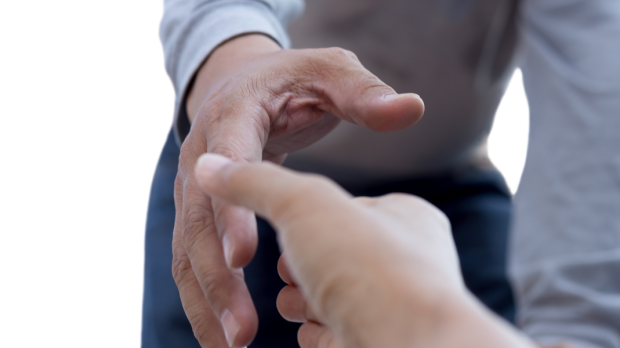Lenten Campaign 2025
This content is free of charge, as are all our articles.
Support us with a donation that is tax-deductible and enable us to continue to reach millions of readers.
According to the World Values Survey (2010 – 2014), approximately 70% of people prefer to be cautious and wary when dealing with others, and only 12% think they can trust strangers.
In countries with the greatest level of trust, such as the Netherlands, Sweden, New Zealand, and Australia, the percentage of people who think most people can be trusted is more than 50%; in the USA, the number is 38%, whereas in Colombia, the statistic dropped to just 4%.
Here is some advice to help build bridges of trust.
1Be trustworthy.
Before we can ask others to be trustworthy, we have to be worthy of trust ourselves. We have to learn to always keep our word. Canceling commitments or not fulfilling our promises breaks down trust.
2Be constant.
In order to build mutual trust, we have to be reliably trustworthy. In a culture of distrust, confidence isn’t won through just one instance of reliability.
3Be loyal.
Loyalty means standing by someone through thick and thin, defending them and supporting them. We are only truly loyal if we are equally ready to stand up for someone when the person is present or absent.
4Be honest.
While we are not obliged to reveal everything to everyone, we should never lie. People won’t trust us if we do—nor should they.
5Be transparent.
Lying isn’t the only form of deception. While some matters are private and rightly kept from the public eye, we have a responsibility to share certain information with people with whom we have a personal or professional relationship. When there is any kind of confusion or miscommunication, we need to clear it up, ensuring that the other people have all the information they need. We shouldn’t hide information in a way that gives them a false impression of our intentions or plans.
6Keep promises.
We should be realistic and not promise more than what we can really do. If we can’t fulfill a promise, we should talk to the person to explain to them why we cannot live up to what we have promised.
We need to be very careful not to deceive ourselves. Without even being aware of it, we can sometimes “adapt” what we say and do to suit ourselves, without being fully honest or trustworthy. We need to try to see ourselves objectively, from the perspective of an outside observer, asking ourselves how we’d feel if we were treated the way we treat others.
When we realize that in some way we haven’t been trustworthy, we need to be honest with ourselves and analyze the reasons behind our behavior so we can avoid it in the future. As is the case with every cultural change, we shouldn’t wait for others to take the initiative. If we want to live in a society where we can trust each other, we have to lead the way by our example of trustworthiness.

Read more:
Have we surrendered our kids to the popular culture?

Read more:
On rediscovering civility in an age of barbarism

